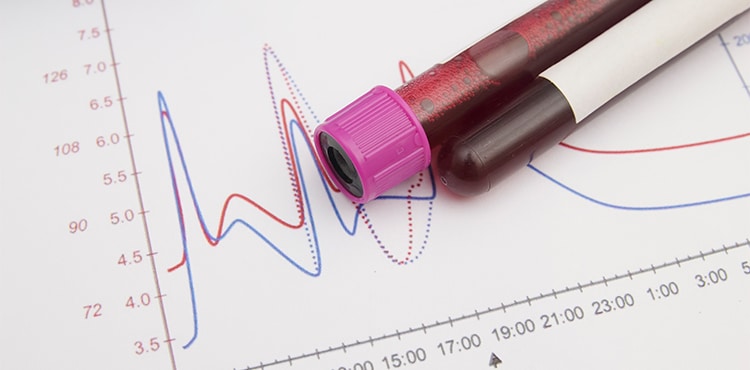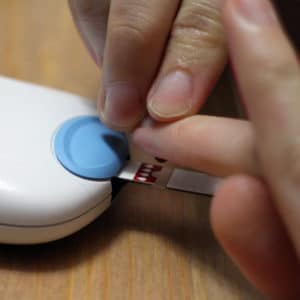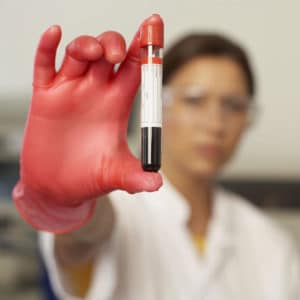
An Alere INRatio lawsuit may be an option for patients who used the home blood clotting monitoring devices and were at risk of major or fatal bleeding because of low INR readings. The medical devices may provide inaccurate results, potentially putting patients at a significant risk of serious injury and even death. Affected patients and their families may be able to file an Alere INRatio lawsuit and seek compensation with the help of a defective medical device attorney.
For more information, contact Attorney Group. We offer free, confidential, no obligation consultations. We can help answer your questions, and if you choose to pursue a case we can connect you with an affiliated Alere INRatio lawsuit attorney who can assist you throughout the legal process.
Have You Seen an Alere INRatio Lawsuit Commercial?
You may have seen an Alere INRatio lawsuit commercial on television and wondered whether you or a loved one have used a defective INRatio® or INRatio2® PT/INR Monitoring System (INRatio System) and, if so, whether you are eligible to pursue a claim against Alere or others. The purpose of this article is to provide you with additional information so that you have a better understanding of your options.
What are Alere INRatio and INRatio2 Monitoring Systems?
According to the U.S. Food and Drug Administration (FDA), the INRatio System, which includes the INRatio® or INRatio2® PT/INR Monitor and the INRatio® Test Strips, are handheld devices used to monitor blood clotting time as measured by PT/INR values in people taking warfarin and other blood thinner medications, including Coumadin and Jantoven. The INRatio System is designed for use by both health care professionals and patients at home.
Warfarin is a prescription anticoagulant used to prevent thrombosis and thromboembolism, to treat blood clots, and to lower the chance of blood clots that may form in the body. Although warfarin has been successfully used for many years as an anticoagulant, the drug must be monitored regularly by blood testing to determine the clotting tendency of blood, also known as the international normalized ratio (INR), to make sure that an adequate dose is taken.
How Does the INRatio System Work?
Home INR monitoring allows patients to test their blood in between doctor visits, potentially providing a higher level of control and care for patients. Monitoring devices such as the INRatio System work by measuring both prothrombin time (PT) and INR. Patients insert a test strip into the device and apply a drop of blood to the strip. In moments, the INRatio System digitally reads their PT/INR level. Patients are then able to connect the device to their home computer and send the results to their health care professional or doctor.
INRatio System Inaccuracies

Device recalls and customer complaints noting inaccurate results using the Alere INRatio System date back to 2014. In many cases, Alere has initiated product recalls based on complaints of patients who said they had therapeutic or near therapeutic INR levels with the INRatio System, but had a significantly lower reading when those levels were checked at a central laboratory.
Patients who use the defective devices may be at risk to severe, life-threatening injuries as a result of a false or low INR reading. Those risks include:
- Blood clot in or near the heart that could trigger a stroke
- Transient ischemic attack, or a brief, stroke-like attack requiring immediate medical attention
- Brain bleeding
- Uncontrollable bleeding
- Death
The use of inaccurate INRatio Systems may lead patients and their health care professional to adjust the dose of their medication. If an INR reading is incorrect, the patient may be at risk of a major or fatal bleeding event and not know it.
Has There Been an Alere INRatio Recall?
In July 2016, Alere San Diego, Inc. initiated a voluntary removal of the INRatio® and INRatio2® PT/INR Monitoring Systems due to incorrect test results. Under certain conditions, the INRatio System may produce an incorrect INR result that is lower than the result expected using a professional laboratory. According to the FDA’s recall announcement in August 2016, the removal includes the Alere INRatio System as well as Alere INRatio® Test Strips. A complete list of serial and lot numbers can be found here. Recalled monitor systems and test strip kits were manufactured and distributed from April 1, 2008 to July 8, 2008.
This recall has been labeled as a Class I recall by the FDA. Class I recalls are the most serious type of recall, and use of these devices may cause serious injuries or death. In addition to the voluntary recall initiated in July 2016, Alere has previously recalled their INRatio monitoring systems in April 2014 and test strips the following December.
Who May Be Affected by the Alere INRatio Recall?
Those who are potentially affected by the Alere INRatio recall include:
- Warfarin users who self-test at home or monitored by a health care professional using the INRatio System
- Health care providers who use the INRatio System to monitor patient blood clotting time
- Device retailers and distributors
Consumers are advised to contact their health care provider as soon as possible to transition to an alternate method of PT/INR testing. Additionally, the FDA has made the following recommendations for patients, health care providers, and retailers and distributors:
- Patients are advised to continue use until they have made a safe transition to an alternate method and to perform the test following the precautions and recommendations outlined in the Medical Device Correction Notification of December 2014 as well as current product insert labeling.
- In addition to patient recommendations, health care providers are advised to ensure that patients make a safe transition to an alternate method as soon as possible and conduct periodic verification of patient INR levels using a plasma-based laboratory INR method during the transition.
- Retailers and distributors are advised to continue manufacturing and distributing the INRatio Test Strips to allow patients time to safely transition to another monitoring method.
All patients should have received an Urgent Medical Device Recall Letter detailing the required actions customers should take.
Have There Been Alere INRatio Settlements?

Some cases settle early in the claims process, but it is not expected that there will be early Alere INRatio settlements. In most cases that proceed in an MDL or state court consolidated proceedings, after a certain period of time initial trials, also known as bellwether trials, take place. The purpose of these trials is for the parties to get an idea of the types of evidence and arguments that will made, as well as to see how juries will respond to the evidence and arguments. After a certain number of cases have been tried, the parties are in a better position to determine whether a case can be settled.
It is expected that Alere INRatio settlements will follow this pattern, although the outcome of any case is never guaranteed and past results are not necessarily predictive of future outcomes.
Alere INRatio Lawsuit News
- August 2016 – Alere San Diego, Inc. initiates voluntary withdrawal of the Alere INRatio® PT/INR Monitor System because, in some instances, the INRatio System may give an INR result that is significantly lower than a result obtained in a laboratory.
- July 2016 – Alere releases a communication letter to all customers describing the removal of the INRatio® Monitoring System and provides information for patients, health care professionals, and retailers and distributors.
- January 2015 – The FDA updates the previous recall in December 2014 to note the number of complaints (over 18,000) the agency had received up to that time as well as additional information, including a corrected email address.
- December 2014 – According to the FDA, Alere, Inc. initiates a voluntary correction to inform customers in the U.S. that the INRatio System should not be used on patients who have anemia of any type with hematocrit less than 30 percent, any conditions associated with elevated fibrinogen levels, and any bleeding or unusual bruising.
- May 2014 – Alere initiates voluntary urgent recall of INRatio® PT/INR Professional Test Strips as a result of complaints from patients who reported significantly higher INR laboratory levels, but had therapeutic levels at home.
How an Alere INRatio Lawsuit Attorney Can Help
Medical device makers have a duty to provide safe products. If there are risks of harm associated with their products, they also must provide adequate warnings. If a device maker fails to fulfill this duty, it could be held liable in lawsuits for injuries that may result.
People injured by defective medical devices may be eligible to recover money for:
- Medical Expenses
- Lost Wages
- Pain and Suffering
The families of those who have died may be eligible to recover money for funeral expenses and the pain that comes with losing a loved one with the help of an Alere INRatio lawsuit attorney.
For more information, contact Attorney Group. After you contact us, an attorney will follow up to answer questions that you might have. There is no cost or obligation to speak with us, and any information you provide will be kept confidential.
Please note that the law limits the time you have to pursue a claim or file a lawsuit for an injury. If you think you have a case, you should not delay taking action.





